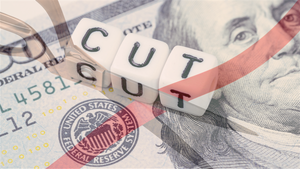NEW YORK, NY / ACCESS Newswire / September 12, 2025 / In a perfect world, everyone would be debt-free. The reality, however, is that even responsible borrowers can fall behind on their payments and accumulate bad debt. While some debt, like a mortgage or student loan, can be considered "good" because it helps build long-term value, high-interest debt such as credit cards is often seen as "bad." If this sounds like you, don't fret. A personal loan for debt consolidation may be just what you need to streamline the payoff process and get out of debt. Let's take a closer look at several reasons you may find yourself in a cycle of bad debt.
You're only paying the minimum
While you don't have to repay your credit card balance in full every month, it's a good idea to do so. Here's why: If you only make the minimum payment, or less than the full balance due, interest will accrue, and, of course, depending on what that unpaid balance is, and what the annual percentage rate (APR) is, you'll owe substantially more in interest over time. If possible, pay more than the minimum or, ideally, your entire balance every month.
You don't have a budget
A budget is a spending plan for your income and expenses. It can help ensure you have enough funds to cover your monthly bills, invest, pay down debt, and save for various financial goals. If you don't have a budget, you may overspend and, in turn, rack up unmanageable or bad debt. Many types of budgets are available, but the most common options include the pay-yourself-first budget, 50/30/20 budget, and zero-sum budget.
You don't earn enough income
Even if you have a full-time job or another stable income source, you might not earn enough to pay for your everyday expenses and repay your debts. A part-time weekend job or a side hustle can be a helpful solution. Depending on your schedule, interests, and skill set, you may want to tutor, babysit, deliver groceries, or wait tables at a local restaurant. Another option is to sell items you don't really want or need.
You frequently overspend or make impulse purchases
It's okay to splurge every now and then, but if you do it too often, unmanageable debt may start to accumulate. Take a close look at your credit card bills and bank statements. Do you notice any recurring unnecessary purchases? Maybe you have a gym membership you don't use, or perhaps you spend money at a coffee shop each morning even though you have a coffee maker at home.
Determine what changes you can make to live within (or even below) your means. You may need to take steps like unsubscribing from tempting marketing emails or stopping your credit card number from auto-filling on your favorite shopping websites to keep spending in check.
You don't have an emergency fund
Surprise expenses like car repairs and medical bills are a part of life. If you don't have a sufficient emergency fund in place, you may be forced to borrow money to cover unexpected expenses and, as a result, go into more debt. Most experts recommend you keep three to six months of living expenses in a high-yield savings account. Aim for six months or more in a savings account if you have a large family or fluctuating income.
It is possible to repay debt (and stay out of it)
Accumulating debt isn't a financial concern unless it becomes a habit and becomes unmanageable. As long as you take steps to pay down what you owe and prevent yourself from getting into further debt, you'll be helping yourself get set up for a brighter financial future.
SPONSORED CONTENT
CONTACT:
Sonakshi Murze
Manager
sonakshi.murze@iquanti.com
SOURCE: OneMain Financial
View the original press release on ACCESS Newswire






